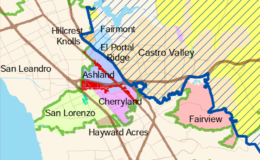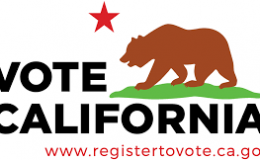Having read the perspective in this article, and the many voices in the Castro Valley Forum voicing similar opinions, I am always struck by the fact that no one ever seems to mention the inconvenient fact that incorporating as a city would invariably raise taxes on all residents in the incorporated area. Not only would there need to be salaries for all of the new governmental positions, and money for the inevitable “improvements” that a new city government would propose, but also let us not forget that the fire and police services currently provided by Alameda County would need to be paid for by the residents. Newly minted cities can easily go broke (http://www.scpr.org/news/2014/01/12/41532/california-s-youngest-city-jurupa-valley-could-cea/) , and would anyone imagine such an eventuality would be good for the people of CV? Also, when I moved to Castro Valley 7 years ago, one of the reasons was specifically because the area was unincorporated and consequently there are no city taxes. In addition, it’s typically comparatively easier to get a county building permit than a city building permit. If it’s not broken, don’t fix it. If people want to live in a city, move to a city.
California, (un)Incorporated: Our communities need democracy, path to incorporation
- By : Michael Kusiak
- Category : Alameda County, Featured Story, Governance, State of California
- Tags: Incorporation, League of California Cities, SB 89, Vehicle License Fee, VLF

I am a resident of Castro Valley, an urbanized, unincorporated community of about 63,000 in Alameda County in the east San Francisco Bay Area. I’ve been working with fellow Californians statewide in unincorporated communities that would like the option of becoming cities, including Salida, Arden Arcade, Mountain House, East Los Angeles and Isla Vista.
Our communities live every day with the impact of little to no local control. Instead of sidewalks, for example, we have dirt paths. If there is a sidewalk, it might just stop in the middle of the block. A mishmash of planning and zoning approaches adversely impacts business development and means that many residents must travel to neighboring cities for access to retail establishments, restaurants and other amenities. These are among the reasons that our communities seek new pathways to greater local control, enhanced democratic participation and greater accountability.
Ultimately, we need voter approval to incorporate. (In my community, we have attempted this previously and wish to do so again.) However, SB 89 (Chapter 35, Statutes of 2011) removed any opportunity for new cities to be financially viable. Communities seeking cityhood already face numerous issues to work through — but because SB 89 makes it fiscally unrealistic to pursue incorporation, these issues are moot.
We should have the ability, just as existing cities did, to give local voters the option to choose cityhood and to incorporate.
In an encouraging move, the Legislature recently corrected the harm that SB 89 caused to the state’s four most recently incorporated cities: Menifee (2008), Wildomar (2008), Eastvale (2010) and Jurupa Valley (2011).
The next step is for the Legislature to ensure that the same opportunities for incorporation, which these cities and all other cities in California have benefited from, exist for communities like mine — so that if we take our quest for cityhood to the voters, the possibility of incorporating is financially feasible.
Unincorporated communities are asking only for a level playing field in their pursuit of local control and cityhood. We encourage legislators and all stakeholders to work with us to make this a reality.
© 2017 League of California Cities®. All rights reserved. Reprinted with permission from the November 2017 issue of Western City® magazine, the monthly publication of the League of California Cities®. For related information, visit www.westerncity.com.
This column accompanied an article titled It’s Time to Restore Opportunities for City Incorporation: The Roots of American Democracy in the November 2017 issue of Western City. The article outlines the impacts of a 2011 law that makes municipal incorporation impossible for California’s 6.5 million unincorporated residents. Castro Valley Matters has written previously about this issue in Cityhood Lost: California keeps Castro Valley unincorporated, new cities struggling.


